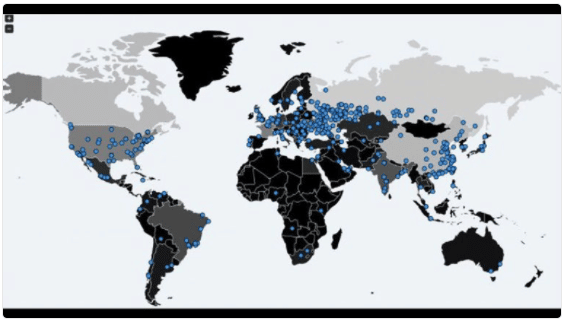3 min read
What is a gray hat hacker and their impact on healthcare?
Anne-Marie Sullivan December 28, 2022

What Is A Grey Hat Hacker?
In the world of cybersecurity, there are various types of hackers with varying motives and methods. One type you may have heard of is the gray hat hacker.
But what exactly is a gray hat hacker?
Simply put, a gray hat hacker is an individual who falls somewhere in between a white hat hacker and a black hat hacker. While white hat hackers are ethical hackers using their abilities for good, black hat hackers use their abilities for malicious motives, such as: stealing sensitive information or causing harm to computer systems.
Grey hat hackers, on the other hand, fall somewhere in the middle.
Grey Hat Hacker
A gray hat hacker is a computer security expert who sometimes violates ethical standards but doesn’t have malicious intentions. Grey hat hackers often discover vulnerabilities in computer systems or networks and notify the owners of the systems about the issue. They may also offer to fix the vulnerability for a fee.
In contrast to black hat hackers – who have malicious intentions and use their skills to gain unauthorized access to systems for personal gain or to cause damage – gray hat hackers don’t have malicious intentions and often act to improve computer security.
However, their methods may be viewed as unethical by some, as they may exploit vulnerabilities without the owner's knowledge or consent.
See more: Why is healthcare a juicy target for healthcare?
The Grey Area
The term "gray hat" is derived from the terminology used to describe hackers. Grey hat hackers often have the same skills and expertise as black hat hackers but use their knowledge and abilities for more ambiguous purposes.
Black hat hackers are those with malicious intentions, while white hat hackers use their skills for ethical purposes, such as working as security consultants. Grey hat hackers fall between these two categories, as they may use their skills for good and questionable purposes.
They may hack into a system without the owner's permission, but their intentions aren’t necessarily malicious. They may do this to uncover vulnerabilities in the system and report them to the owner or a third party, often in exchange for a fee or some other form of compensation.
In this sense, gray hat hackers can be seen as a mix of white hat and black hat hackers, as they use their skills for both ethical and potentially unethical purposes.
See more: HHS reminder: remain vigilant against cyberthreats
Examples Of Grey Hat Hackers – Justin Shafer
One real-life example of a gray hat hacker in the healthcare industry occurred in 2016, when a security researcher named Justin Shafer discovered a vulnerability in the Electronic Health Records (EHR) system used by a large healthcare organization. Shafer could access the system without proper authorization and found that it contained sensitive patient information, including medical records and social security numbers.
Instead of attempting to profit from the vulnerability or causing damage to the system, Shafer notified the healthcare organization about the issue and offered to help fix it.
However, the organization did not respond to Shafer's notification and he eventually publicly disclosed the vulnerability on his personal blog.
While Shafer's intentions were not malicious, some viewed his actions as unethical because he accessed the EHR system without proper authorization. In addition, the healthcare organization may have preferred to keep the vulnerability secret to avoid negative publicity or legal repercussions.
Despite the controversy surrounding his actions, Shafer's discovery ultimately led to the healthcare organization taking steps to improve the security of its EHR system. In this way, Shafer's actions as a gray hat hacker ultimately positively impacted the system's security and the protection of patient data.
See more: White House warns against possible Russian cyberattacks
The Current Situation
This example illustrates the complex ethical issues that can arise in gray hat hacking. While Shafer's intentions were good, some may have viewed his actions as unethical. It’s important for individuals and organizations to carefully consider the potential risks and ethical implications of gray hat hacking before engaging in these activities.
Despite the controversy surrounding gray hat hacking, it’s undeniable that these individuals have a significant impact on the field of computer security.
See more: HIPAA compliant email: The definitive guide
How Paubox Can Help
In the healthcare industry, the importance of cybersecurity cannot be overstated. With sensitive patient information at risk, it's essential to take all necessary precautions to protect against potential threats. Understanding the different types of hackers, including gray hat hackers, can help healthcare professionals make informed decisions about how to best secure their systems and protect their patients.
One way to mitigate these risks is by implementing strong security measures and staying up to date on the latest cybersecurity threats.
One such solution is Paubox, the leading provider of email encryption and secure messaging solutions for the healthcare industry. With Paubox, healthcare organizations can securely send and receive sensitive information, ensuring their patients' data privacy and security.
Using Paubox, healthcare organizations can protect themselves and their patients from the potential risks of gray hat hacking and other cybersecurity threats.
So if you want to improve your healthcare organization's security, implement Paubox to protect your sensitive data and keep your patients' information safe.
Today, being vigilant in your cyber security efforts is more critical than ever. And Paubox is a valuable tool in helping you do just that.
Subscribe to Paubox Weekly
Every Friday we bring you the most important news from Paubox. Our aim is to make you smarter, faster.



